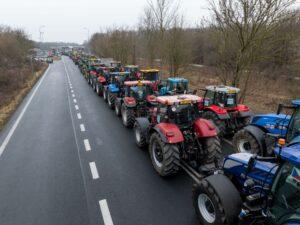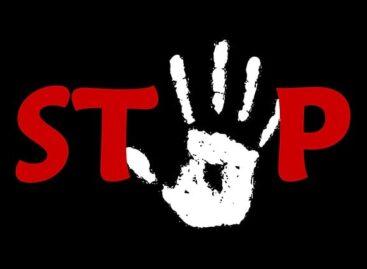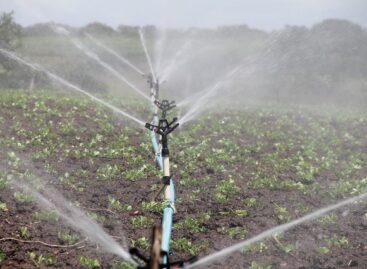Farmers from Central and Eastern Europe protested against Brussels’ anti-farmer agricultural policy
A joint demonstration was held by Czech, Slovak, Austrian and Hungarian farmers. In the framework of the protest action organized by the agricultural chambers of the Central and Eastern European countries, the producers gathered on the Czech-Slovak border to voice their dissatisfaction with Brussels’ agricultural policy and to demand an immediate solution from the European Commission in order to manage the market situation caused by Ukrainian imports.

(Photo: NAK)
Almost exactly one year after last year’s joint demonstration, farmers from the Visegrad countries gathered again on the Slovak-Czech border to voice their dissatisfaction with Brussels’ agricultural policy. The Hungarian, Slovak, Austrian and Czech chambers of agriculture held a protest action with several hundred tractors at the Czech-Slovak border crossing (Holič, SK – Hodonín, CZ) on February 27. During the demonstration, the producers of the countries concerned made it clear that the primary task of agriculture is to guarantee food security and to produce quality and safe food. That is why it is crucial to preserve the economic viability of the agri-food industry in the European Union.
The participating chambers of agriculture adopted a joint declaration
One of the most important points of this is that they demand from the European Commission to preserve the resources of the Common Agricultural Policy, reduce bureaucracy and improve the competitiveness of European food production. The participants of the demonstration reject the reduction of the CAP budget and the Commission’s initiative to abolish area-based payments. They also call for a new agreement between Europe and Ukraine that will protect the community’s farmers. The autonomous trade measures (ATMs) introduced by the European Commission will expire on 5 June 2025, and their termination could pose a serious threat to the agriculture of Central and Eastern European countries and significantly impair the competitiveness of European farmers. Moreover, a significant part of the incoming goods does not even meet the food safety requirements of the European Union. That is why the protesting farmers are demanding that producers from third countries exporting to the EU be required to comply with the same EU veterinary and phytosanitary standards as EU farmers. The statement also addresses the free trade agreement between the European Union and Mercosur states, which would have significant distortive effects on the market for agricultural products. As a final point of the declaration, the agricultural chambers of the countries concerned pledge their support for the European Citizens’ Initiative called Stop Fake Food, which aims to reveal the true origin of food.
NAK
Related news
V4+ agricultural chambers protest European Commission plans
🎧 Hallgasd a cikket: Lejátszás Szünet Folytatás Leállítás Nyelv: Auto…
Read more >NAK: farmer needs assessment can help the development of irrigation training
🎧 Hallgasd a cikket: Lejátszás Szünet Folytatás Leállítás Nyelv: Auto…
Read more >Related news
40 secure jobs, sustainable solutions – new BURGER KING® in Csepel
🎧 Hallgasd a cikket: Lejátszás Szünet Folytatás Leállítás Nyelv: Auto…
Read more >







